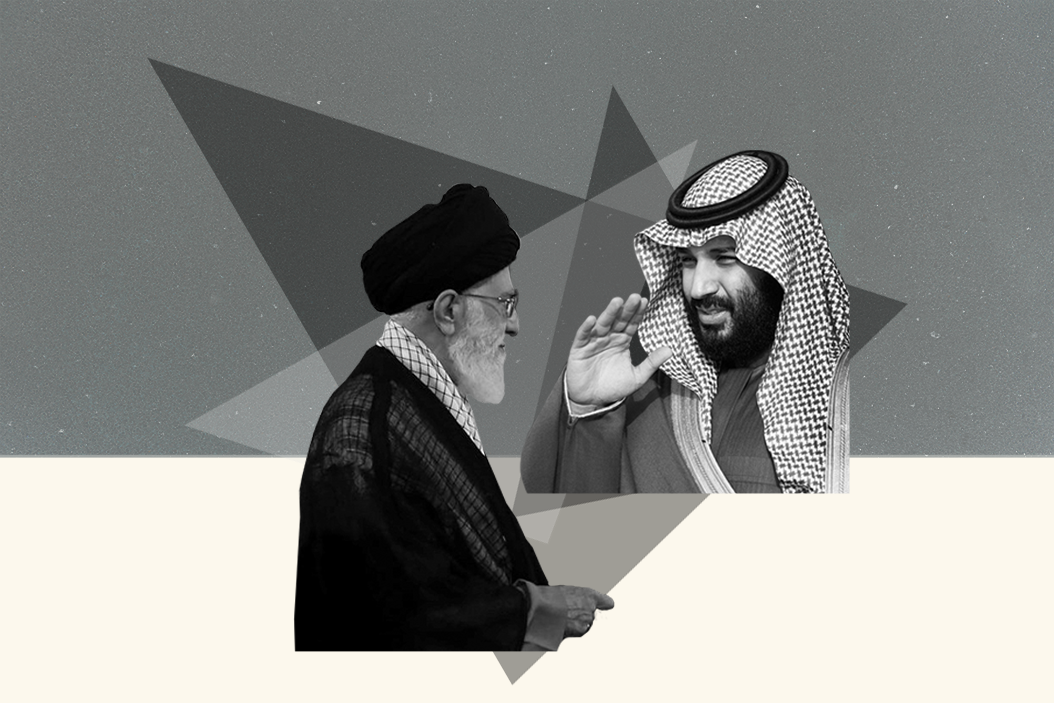Few rivalries in the world today are as bitter and bloody as the struggle between Iran and Saudi Arabia. For more than forty years, they have vied for sectarian and strategic influence across the Middle East, waging proxy wars that have wreaked havoc in Lebanon, Iraq, Syria, Yemen, and elsewhere.
But now it appears the two old foes might be looking for ways to patch things up.
After initially denying a Financial Timesscoop about secret bilateral talks held in Iraq last month, the foreign ministries of both countries now acknowledge that yes, Tehran and Riyadh are gingerly exploring a detente.
In fact, Saudi Crown Prince Mohamed Bin Salman, the kingdom's de facto ruler, recently called for "good and special relations with Iran".
That's a hell of a change of heart since 2018, when he said that Iran's Supreme Leader Ayatollah Ali Khamenei "makes Hitler look good."
So why might they be looking to make nice now?
Washington is one reason. In a dangerous world, the Saudis are worried about the Biden administration. "Saudi Arabia can no longer expect the same backing that they had under Trump," says Ahmed Al-Omran, editor of the (very good) Riyadh Bureau newsletter. Since coming to office, Smokin' Joe has cut support for Saudi Arabia's ruinous military campaign against Iran-backed rebels in Yemen, chided Riyadh over its lousy human rights record, and launched a full-bore diplomatic effort to revive the Iran nuclear deal — something the Saudis always opposed.
Given Biden's broader push to reduce American involvement in the Middle East, the Saudis might be keen to find a better modus vivendi with their main regional rivals. The Saudi overtures to Tehran come amid fresh thaws with Syria and Turkey as well.
Meanwhile, from Iran's perspective, easing tensions with the Saudis is one way to mollify Riyadh's opposition to a revived nuclear accord. What's more, al-Omran says, it could open the way to broader economic ties with the Arab world after a new deal is done. (Israel's misgivings about a new nuclear deal, of course, may be harder to overcome.)
Rivalries are expensive. Nobody knows for sure how much Iran spends on its proxies and government allies in Lebanon, Iraq, Gaza, and Yemen, to say nothing of the massive support for Syria's Bashar al-Assad — but it's expensive. Most estimates come to about $15 billion a year.
That's no small amount for an economy crippled by US sanctions, and many Iranians know it. Back in 2018, during mass protests over corruption and the economy, some marchers called out Tehran for spending on foreign proxies rather than Iranian needs: "No Gaza, No Lebanon, No Syria," they chanted, "My Life for Iran!"
Saudi Arabia, for its part, might also like to spend less money on defense as it looks to modernize its economy as part of the Crown Prince's grand plan to wean the country off of oil revenues. In fact, Riyadh has already been cutting its defense spending for several years. This year, arms outlays are set to drop nearly 4 percent. Better relations with Iran would ease the pressure to buy more guns.
And green economies are bad for black gold. Is it a stretch to say global warming is part of this story too? Maybe. Neither country has openly put climate change at the center of its policy. But both can certainly see the writing on the wall elsewhere: as governments around the world cut carbon emissions, the salad days for oil exporters are coming to an end. Saudi Arabia and Iran each stand to lose around 40 percent of their revenue by the year 2030. That means new priorities have to be set: and sectarian hate is expensive.
Still, let's not get carried away. These are cautious and preliminary talks between two bitter rivals who have detested each other for more than forty years. There is a ton of baggage in the relationship — religious, strategic, economic — that won't be easy to get past. Any progress will be halting and fragile.
But every path to detente starts somewhere. Perhaps this one begins in Baghdad?
